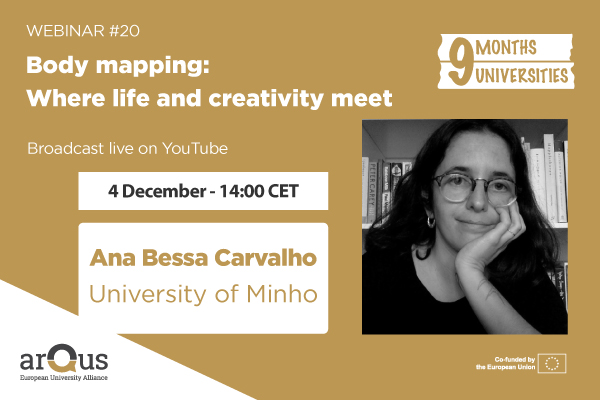
#20 webinar of the “9 Months, 9 Universities” series: Body mapping: Where life and creativity meet

Format: Online
Open to: Academics & researchers, Admin. Staff, Early Post-docs, General public, Master's students, PhD Students, Students, Teachers
On 4 December 2025 at 14:00 CET.
Building on its long-standing use in therapeutic and educational settings, this talk will offer an accessible introduction to body mapping – its origins, purposes and practical guidelines. It will also highlight its value in the classroom, especially for international and multilingual students. As a transcultural practice, body mapping is uniquely capable of crossing borders, languages and life experiences. Through this method, students are invited to create a visual map of themselves using drawing, collage, written words and other creative materials. This reflective process encourages them to explore their past, present and future, as well as themes such as family, belonging, community, identity, immigration and embodiment. When words fall short – particularly in the attempt to express personal history in a foreign language – body mapping provides an alternative form of expression. It also emphasises the importance of creativity in learning spaces and fosters a meaningful return to material, hands-on practices in an increasingly digital environment.
The speaker

Ana Bessa Carvalho is an assistant professor in the Department of English and American Studies at the University of Minho, where she completed her PhD in comparative literature and queer studies. She currently serves as vice dean of the School of Arts and Humanities. Her research focuses on queer studies, animal studies and memory studies.
9 Months, 9 Universities is a series of guest lectures that focus on specific topics related to language and culture and target mainly graduate and postgraduate students as well as Early-Stage Researchers and lecturers interested in these topics. The lectures are intended to generate awareness and appreciation for the topic of multilingualism as well as an understanding of the many areas of our lives that are influenced by language.